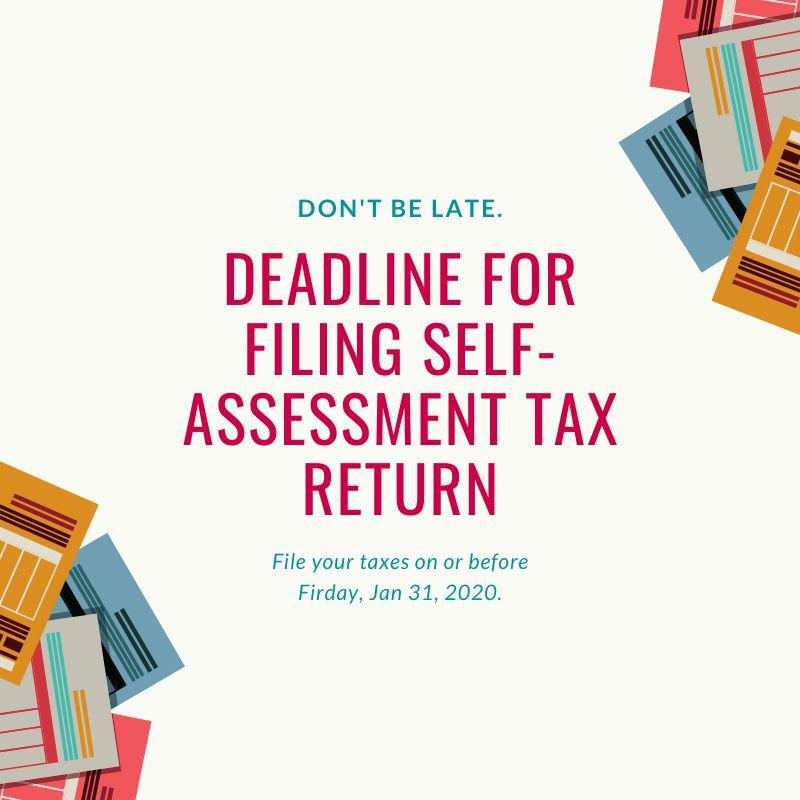
The deadline for filing the online Self Assessment tax return for the tax year ending 5 April 2019 is midnight on 31st January 2020. There are other deadlines as well which tax-payers have to keep in mind so that unnecessary penalties won’t be incurred. A self-employed person or a person earning income from personal property will have to file their online tax return by 31st January of every year. Those who miss these deadlines will have to deal with fines and the worst part is, they keep piling up with delay. People have to be vigilant of this fact and pay off their taxes well before the deadline. Or they can take help of an accountancy outsourcing services provider to outsource bookkeeping and to take care of personal tax returns.
Self-assessment is a system used by HMRC to collect Income Tax. Usually the taxes are deducted from wages and salaries. You need to keep records to file your tax correctly. The deadline to pay your online self-assessment tax return is 31st January. The deadline to pay your paper tax return was 31st October. The Income tax band defines how much you will have to pay. The taxes are paid on income from renting property, income from abroad or business partnerships etc.
It’s important to file your self-assessment on time to avoid penalties. To make the process of submission simplified, gather all your documents together. Always always avoid filing the tax at the last minute.
Do You need to register for self-assessment? If your answer is a YES, then please scroll down. If you are a sole trader or a director of a limited company or you have multiple sources of income then you may require to file a tax return. The basic form is called SA100. You may also require supplementary forms, depending on your circumstances.
Below you will find a checklist for self-assessment tax return submission, which will help you to file taxes efficiently.
- National Insurance Number
- Unique taxpayer reference number- Activation Pin
- Company/Partnership name, address, company number (only if relevant)
- Your business annual Income and Expenditure
- Income earned from other employment
- Any rent received, interest paid on loans, credit cards or any other credits
- Savings
- Income from abroad
- Income received from a partnership
- Dividends received if any
- Any benefits received (Jobseekers allowance or maternity allowance)
- Capital gains received
- Any gift aid received
- Any State or Private Pension received
- Tax payment made this year
Checklist that you may also need to submit:
- P45 form (issued by an employer when you leave a job during a tax year)
- P60 form (issued by an employer during the tax year that tax is already paid)
- Interest received from bank
- Expenses receipts
- P11D form (issued by an employer during the tax year to report taxable benefits)
- P2 coding notice
Note: If you have any other income other than mentioned above, you need to include that in your tax return.
Following are the business expenses that you can claim:
- Gift Aid
- Donations
- Legal and Financial Services
- Pensions Contributions
- Travel
- EIS Investments
- Marketing, Subscription and Entertainment
Now that you are ready with all the documents, it’s time to submit.
Check. Recheck. You should complete all the forms and submit all forms after checking them. Lastly, pay your tax before the deadline. To avoid the stressful filing of tax, you can always hire a professional. Do not rush in filing your taxes, as any mistake if made, would result in costly penalties. If you have any questions, we can arrange a meeting to discuss how we can help you file your taxes.

